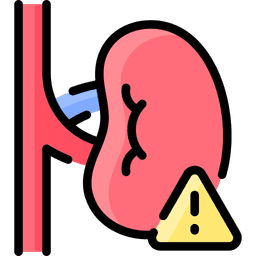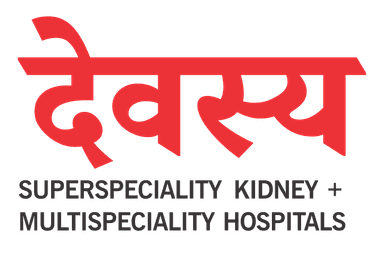Chronic Kidney Disease Treatments & Surgery
How Devasya Hospital Helps to Cure Chronic Kidney Disease?
Devasya Hospital, known for its expertise in treating chronic kidney disease, offers a comprehensive approach to address this condition. Renowned for specialized care, the hospital's team of nephrologists and multidisciplinary experts conduct thorough evaluations, devising personalized treatment plans.
Patients benefit from state-of-the-art dialysis services encompassing both hemodialysis and peritoneal dialysis, ensuring efficient renal replacement therapy. Moreover, Devasya, the best hospital for chronic kidney disease, boasts a dedicated kidney transplant program facilitated by experienced surgeons who oversee recipient evaluations and provide comprehensive post-transplant care. The hospital's commitment extends to utilizing advanced medical technology for accurate diagnoses and effective treatment monitoring.
Embracing a holistic approach, Devasya Hospital not only tends to medical needs but also offers nutritional guidance, psychological support, and advice on lifestyle modifications. Additionally, the hospital might engage in research endeavors, potentially granting access to innovative therapies. For individuals seeking Chronic Kidney Disease treatment, Devasya Hospital's reputation, expertise, available services, success rates, and patient-centric care make it a noteworthy option for optimal management, be it dialysis or kidney transplantation.
FAQs
Chronic Kidney Disease is a condition characterized by the gradual loss of kidney function over time. It impairs the kidneys' ability to filter blood, leading to the accumulation of waste and fluid in the body.
Common causes of Chronic Kidney Disease include uncontrolled diabetes, high blood pressure, glomerulonephritis (kidney inflammation), polycystic kidney disease, recurrent kidney infections, and prolonged urinary tract obstruction.
Diagnostic tests for Chronic kidney disease include blood tests (measuring creatinine and estimating glomerular filtration rate), urinalysis, imaging tests like ultrasounds or CT scans, and occasionally, a kidney biopsy to assess kidney health.
Stage 3 Chronic Kidney Disease indicates moderate kidney damage with a glomerular filtration rate (GFR) ranging between 30 and 59 milliliters per minute. At this stage, symptoms might start to appear, and careful management is crucial to slow progression.
Complications of CHRONIC KIDNEY DISEASE include anemia, bone disease, fluid retention leading to swelling, heart problems, high blood pressure, nerve damage, and an increased risk of cardiovascular disease.
Preventive measures for Chronic Kidney Disease involve managing underlying conditions like diabetes and high blood pressure, maintaining a healthy diet low in sodium and saturated fats, avoiding tobacco and excessive alcohol consumption, regular exercise, and routine health check-ups to monitor kidney function. Early detection and management of conditions that can cause kidney damage are crucial in preventing Chronic Kidney Disease.



